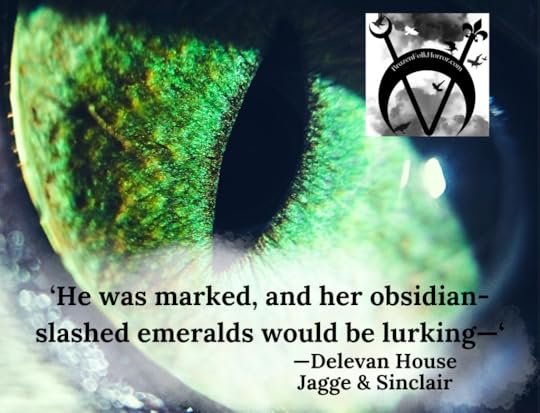Ruthann Jagge's Blog, page 4
March 10, 2023
The Cast of Delevan House #5
Lawrence Gordon
Witches! Witches! Witches!
Naw, not really. More Fae. However, let’s broach the ‘witch’ in the room a wee bit today.
Perhaps the way Jagge and Sinclair communicate certain ideas in the public domain, and considering Sinclair’s ‘Clan Witch‘ brand, many folks have assumed that Delevan House would be a novel of witches and witchcraft. Well, assumptions are often incorrect, and in this, that stands true.
Readers have and will discover that the world that stages Delevan House touches on historical references to the Scottish witch trials, specifically during the 17th century. The witch frenzy hit peek points at various stages between the 14th and 18th centuries. The most notable occurrences were heightened during political, economic and religious unrest. (Thank goodness, that at least isn’t something we have to worry about in today’s Scotland. There would be little blood left to spill!)
The 17th century trials are relevant to the period of a few of the Delevan House cast. One of whom, Lawrence Gordon, was a Minister of Badb and Witch Pricker of his time. Unless you’re familiar with this part of history, Scottish Witch Prickers would search out the ‘Devil’s Mark’ in those accused of witchcraft using needles and other sharp implements. They would ‘prick’ the accused’s skin, paying attention to freckles, moles and such marks. It was said that if the pricker hit a mark where the accused did not cry out in pain – that they had found the ‘Devil’s Mark’ confirming their guilt as a witch. These Witch Prickers spilt from lowland Scotland over the English border to support Witch Hunts there.
Given out timeframe and location, it would be impossible to visit Scotland during that period, even in fiction, and not be exposed to the atrocities and, indeed, the madness that had taken over the people in the frenzied hunts and trials.
A horrific fact of Scottish history is that Scotland was responsible for the highest proportion of witch executions, killing up to an estimated 6,000 people. Note people. Yes, it wasn’t just women, though women made up most of those murdered. The tried and killed included some men and, indeed, children too. The numbers are something that are by no means exact. Many records were destroyed, or simply never recorded, so the exact details are impossible to pin down. Overtaken by such hysteria, it’s no surprise.
Sinclair has a particular interest in these crimes of humanity, being a practising pagan (yes, she admits it. Don’t call in the pricks. She’s a witch) and keen explorer of historical sites, art and literature of her Celtic lands, it’s an area she’s confident in approaching through writing and art.
The word, ‘witch’, is one whose meaning has changed over the centuries. And in many fictions, such as fairytales, those witches are radically different to those who were and are persecuted. And in the real world, there is also a gulf of differences there too. Not all of those executed for crimes of witchcraft in the period noted were practising ‘witches’ as many may think. Yes, some may well have been, and some included cunning folk and healers who wielded tools of Mother Nature in poultices and other remedies to support their communities.
In early modern Britain (specifically, the late 15th century), witch hunts were a political move for religious reforms. Christians killed Christians (and others who didn’t fit the desired mould). In their first occurrences, the Catholic Church were a significant driving factor. Supported by the Papal Bull of 1484 by Pope Innocent VIII, which acknowledged and condemned witchcraft and witches and followed physical action in the form of inquisitors being dispatched into communities to weed out witches. The authors of the infamous The Malleus Maleficarium took this papal bull as ‘support’ for their text when it was first published a few years later in 1487, even publishing the bull as the book’s preface. This book became somewhat of a manual in seeking out and executing witches—written by Catholic clergyman Heinrich Kramer and Inquisitor and theologian Jacob (James) Sprenger.
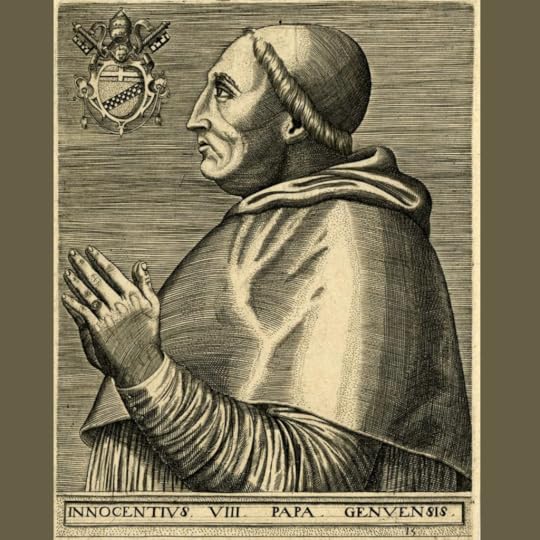 Pope Innocent VIII
Pope Innocent VIII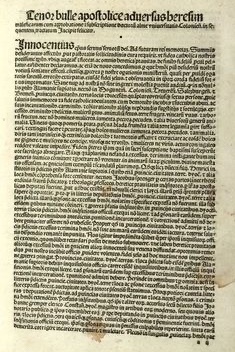
Later, towards the end of the 16th century, the English (and Scottish King) monarchy tried to move the country to Protestantism, and witch trials were a way to burn out the Catholics who wouldn’t fall in line. This, of course, spiralled. In 1597, King James I published his manifesto against the witches in Daemonologie. By this point in history, many condemned the support for The Maleus Maleficarum, but King James I had his own vendetta and paranoia about witches. And this global fear was a tool easily manipulated and wielded to thin the herd (in Britain) of those that were Catholic and whoever else took the fancy as an unsavoury in the community.
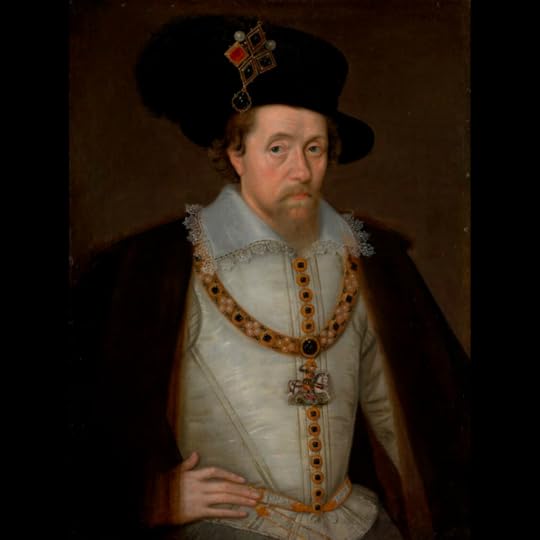 King James I
King James I300 years after the Scottish Witch hunts, a justice campaign, Witches of Scotland, launched on International Woman’s Day 2020 and ran for two years which drew attention to the brutal torture and murder of those tried and found guilty as witches. The petition can be read here. This zealous campaign resulted in the acknowledgement and apology for victims executed under the Witchcraft Act of 1563 from Scottish Government’s First Minister, Nicola Sturgeon. The petition progress can be accessed here. This came on International Women’s Day, 8th March 2022, where Sturgeon outlined three reasons for apologising for these historic crimes:
“Firstly, acknowledging injustice, no matter how historic is important. This parliament has issued, rightly so, formal apologies and pardons for the more recent historic injustices suffered by gay men and by miners.”
Nicola Sturgeon, Scottish Government
“Second, for some, this is not yet historic. There are parts of our world where even today, women and girls face persecution and sometimes death because they have been accused of witchcraft.”
Nicola Sturgeon, Scottish Government
“-thirdly, fundamentally, while here in Scotland the Witchcraft Act may have been consigned to history a long time ago, the deep misogyny that motivated it has not. We live with that still. Today it expresses itself not in claims of witchcraft, but in everyday harassment, online rape threats and sexual violence.”
Nicola Sturgeon, Scottish Government
Prior to this (and potentially since) there has been movement within some communities where memorials have been commissioned and erected in commemoration of those executed.
The words ‘pagan’ and ‘witch’ have historically (and even now by some) been wielded as slurs. Ultimately though, they were used to target anyone who didn’t fall in line with the dominating organised religion or political regime of the area or time. And are both often used to note folks who honour more than one god or deity.
Through the bloody historical realities of our world, where neighbours and communities turned on each other. Families turned on families. Sinclair has been easily able to trace several of her ancestors murdered during the hysteria and has visited sites where they were strangled and burned. She has lifelong been opposed to organised religion and found herself a wandering witch of her own ancient pagan path. So, the use of fictional witches gives her deep conflict at times. Biting back a bitter taste rising in her throat. The ancestors whose energy bides within recall being strangled. They get restless. It takes work to separate the realities and fiction and consider what the author’s motivations are to the piece that uses the ‘witch’. Which ‘witch’ are they using?
In many cases, it is blatant, thoughtless cultural appropriation. Using witches in fiction can compound prejudices or misplaced romanticism that sits uncomfortably on this witch’s soul (Oh, yes, I most certainly have one, not sold off to any Christian devil—that is fiction). Are these personal truths an asset or a hindrance when revisiting the past, even in fiction, to our brazen readers? Well, that’s for you to decide. Perhaps for Sinclair, it’s a wee bit of both.
Returning to our Badb Minister and Witch Pricker of our novel, Delevan House. Readers are introduced to Lawrence Gordon in 17th century Scotland. He is not painted favourably in his sequence of events. He is a self-righteous man, always looking at what others have and feeling like he deserves more. He’s bitter, jealous and cursed with envy which controls his actions. He is obsessed with The Malleus Maleficarum — the notorious Hammer of the Witches. And his sadism knows know limits — his involvement in the witch hunts and trials deepens his bloodlust and drives him power mad. This book was his excuse. He perhaps commits one of the ultimate sins as a man of faith when he sees himself as more than a hand of his god but has god-like views of himself. His superiority complex controls the village of Badb and does so through generations after his death. We see some of his character traits in the present with Robert Lawrence Gordon.
Delevan House is not a ‘witch’ book. This novel draws on historical elements to reflect the time and impacts these have on some of our cast. Time and history can be significant catalysts in art and life.
In one of our updates, we shall share more with you due to Scottish and Celtic mythologies that touch on ‘witch’ in other ways. For now, these two old atrocities are some of what runs through the blood of our Gordon family cast.
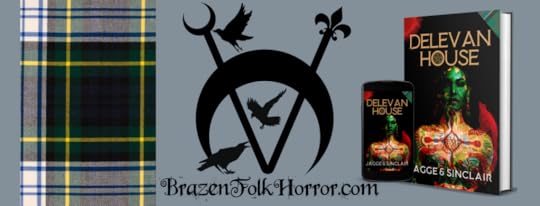
March 3, 2023
The Cast of Delevan House #4

Minerva Morven is our woman of a certain age. Though a resident of Badb village, she’s not one to indulge or engage in casual conversation or frivolous outings.
No one would describe her as outgoing or even friendly. Something off-putting about her keeps other villagers at arm’s length.
Despite her average appearance, Minerva commands and demands respect. Even with her high walls, Minerva is the first many flock to when troubles or situations out of their control arise. Her door is always open, especially to other females in need. In many respects, Minerva Morven is a traditionalist, but her mind is sharper than any youth, and her skill set is unmatched.
She married her darling Arlen very young, and their life in the small cottage on the edge of the loch for a while was idyllic. Arlen Morven’s first love was the sea, and he made his living as one of the finest fishermen ever to live in Badb. He’d fearlessly head out into the rough deep waters few dared to explore, and villagers would wait on the dock for him to return with the best bounty. As a young wife, Minerva spent her days stitching, anxiously waiting for his return. As an expert seamstress, she was cut well above any other who wielded the needle. The Morvens enjoyed watching their young son Arlen Jr. grow up together.
When the sea claimed her husband for herself, Minerva was inconsolable. The widow’s tight circle of friends gathered her close. Young Arlen was old enough to feel her grief. The boy spent his days in the garden, sketching the many plants and herbs his mother grew, and reading became his best friend and escape.
Her husband’s body was never recovered. Some whispered that the confident fisherman may have made a deal he could not pay. Naturally, Babd’s feisty rumor mills spun many yarns. Minerva ignored them. She had her ways of coping.
Time had never healed Minerva’s loss. She shifted her focus to her business; a talented sewist can always name her price for custom and unique work. She lived a simple life with her son. Their days were spent at home, and Arlen learned more valuable lessons under his mother’s wing than from formal education. Minerva taught him about plants and animals, the circle of life, the moon’s cycles, and how everything is alive according to nature’s intention. Most of the time.
Minerva saved enough to pay cash for the local pub, The Rowan. In many ways, The Rowan is the hub of the village, and Minerva runs her business like a well-oiled machine. Before Arlen left for school, he ensured it thrived and provided his mother with an excellent return, which was not especially hard to do when it was the only establishment in the village. The Morven’s son has become a handsome, brilliant, and kind young man.
Minerva’s sewing and gardening fill her days. She has more work than she can handle and employs her sewing circle to help. There are some commissions only she can work on, which are very specific.
She can live well for a year at a time from the prices of the green silk garments, painstakingly stitched by only her hands’ command. Her impressive herb beds thrive in all seasons, and she enjoys drying and making tinctures that heal or have other purposes upon request or necessity.
Minerva is one of Ruthann’s favorite characters, although we love them all.
Women become more fascinating, multi-layered, and fearless as they age if they are fortunate. The lines on her face are a roadmap of her life thus far, and her scars are banners of triumph. Minerva Morven is much more than meets the eye in Delevan House, and she’s only begun to show what she’s made of.
She’s an enigma, not to be underestimated.
Wisdom comes with age, and specific skills are timeless.

Ruthann’s song for Minerva Morven, ‘You Should See Me in a Crown’ — Billie Eilish.
Natasha’s song for Minerva Morven, ‘Small Town Witch’ — Merci Raines.
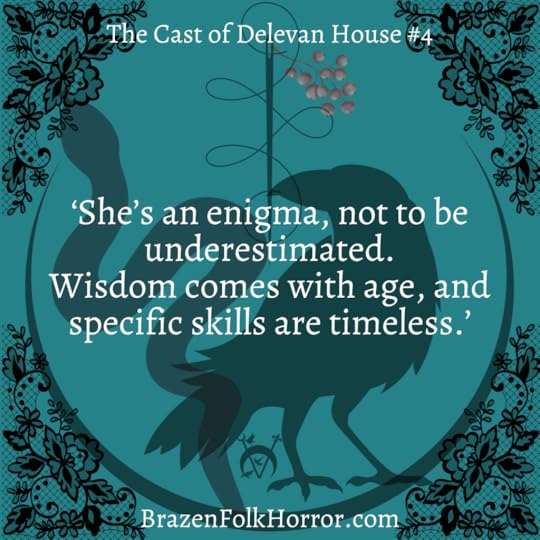
February 24, 2023
The Cast of Delevan House #3
This week you’ll learn a bit more about what makes Robert Lawrence Gorgon tick. Though no more than you’ll discover from visiting Badb village, where his clan resides.
Robert’s bloodline in the village is strong, as is his arrogance. That, too, is in part, genetics if you consider his ancestor, Lawrence Gordon. Robert’s weakness, however, comes in pint glasses. Although he doesn’t lack confidence, his self-righteous convictions may cost him more than the family’s reputation if he uses his bullying ways to negotiate when the stakes are high.
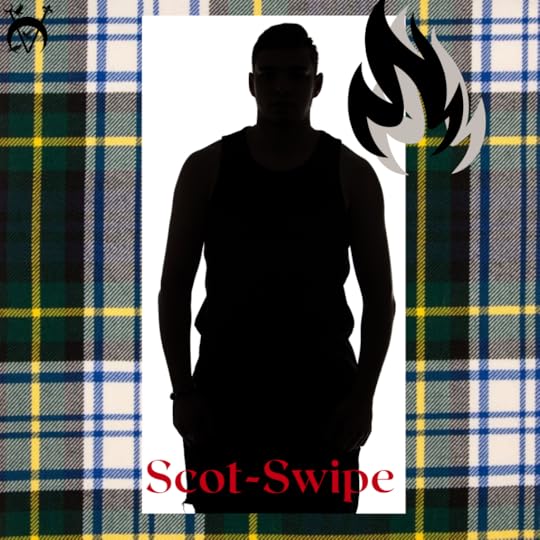

Ruthann’s song for Robert Lawrence: ‘I Ain’t No Nice Guy’ — Motörhead.
Natasha’s song for Robert Lawrence: ‘Bad Guy’ — Billie Eilish.
February 17, 2023
The Cast of Delevan House #2
Jenna McCray’s Taste of Scotland
Jenna McCray’s first drink in Scotland, when the New Yorker find herself in the coastal village of Anand, is a pint of Scottish-brewed heather ale, Fraoch. Why?
Well, it’s Natasha’s favourite Scottish Ale, and there are plenty of flavoursome brews available! While as far as alcohol is concerned, the Scots are more known for whisky, and rightly so. It’s not the only liquor that we produce and do so well. Leann Fraoch has been brewed in Scotland since 2000 B.C this ale is historical and, like great folk stories, has stood the many tests of time.
It has been produced to its ancient Gaelic recipe and exported exclusively in modern times by The Williams Bros. Brewing Co since 1988. Their description of this amber nectar of the old gods is perfect—
This beer allows you to literally pour 4000 years of Scottish history into a glass.
Williams Bros Brewing Co
Even the secret of the heather ale recipe is one that’s been long told through spoken folk tales. Not just in Scotland, Ireland too has its variance on their brew known as ‘bheóir Lochlannach’ in Irish legends.
Edinburgh-born novelist Robert Louis Stevenson is known for classics a Treasure Island and The Strange Case of Dr. Jekyll and Mr. Hyde, and if unfamiliar with those one of his poems is the theme for the popular tv show Outlander, ‘Sing me a Song of a Lad that is Gone’. He, too, wrote a poem about the amber nectar in his poem A Galloway Legend:
From the bonny bells of heather They brewed a drink long-syne, Was sweeter far than honey, Was stronger far than wine. They brewed it and they drank it, And lay in a blessed swound For days and days together In their dwellings underground. There rose a king in Scotland, A fell man to his foes, He smote the Picts in battle, He hunted them like roes. Over miles of the red mountain He hunted as they fled, And strewed the dwarfish bodies Of the dying and the dead. Summer came in the country, Red was the heather bell; But the manner of the brewing Was none alive to tell. In graves that were like children’s On many a mountain head, The Brewsters of the Heather Lay numbered with the dead. The king in the red moorland Rode on a summer’s day; And the bees hummed, and the curlews Cried beside the way. The king rode, and was angry; Black was his brow and pale, To rule in a land of heather And lack the Heather Ale. It fortuned that his vassals, Riding free on the heath, Came on a stone that was fallen And vermin hid beneath. Rudely plucked from their hiding, Never a word they spoke: A son and his aged father— Last of the dwarfish folk. The king sat high on his charger, He looked on the little men; And the dwarfish and swarthy couple Looked at the king again. Down by the shore he had them; And there on the giddy brink— “I will give you life, ye vermin, For the secret of the drink.” There stood the son and father And they looked high and low; The heather was red around them, The sea rumbled below. And up and spoke the father, Shrill was his voice to hear: “I have a word in private, A word for the royal ear. “Life is dear to the aged, And honor a little thing; I would gladly sell the secret,” Quoth the Pict to the King. His voice was small as a sparrow’s, And shrill and wonderful clear: “I would gladly sell my secret, Only my son I fear. “For life is a little matter, And death is nought to the young; And I dare not sell my honor Under the eye of my son. Take him, O king, and bind him, And cast him far in the deep; And it ’s I will tell the secret That I have sworn to keep.” They took the son and bound him, Neck and heels in a thong, And a lad took him and swung him, And flung him far and strong, And the sea swallowed his body, Like that of a child of ten;— And there on the cliff stood the father, Last of the dwarfish men. “True was the word I told you: Only my son I feared; For I doubt the sapling courage That goes without the beard. But now in vain is the torture, Fire shall never avail: Here dies in my bosom The secret of Heather Ale.”This poem depicts the slaughter of the Picts by the Irish King, who wanted the land and the secret of the magical heather brew. It’s quite something isn’t it? Read it aloud, and feel it in your blood.
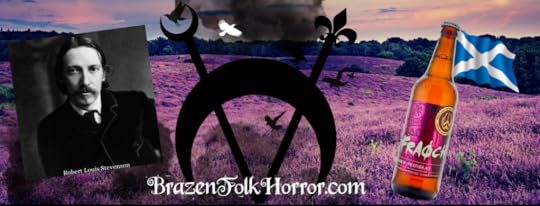
It felt only fitting to cleanse Jenna’s palate with something exceptional. Something made from the roots of Scottish history, from the glorious soft water, rich peat and wild floral heathers.
Even this seemingly minor detail of a woman having a drink after a long flight was considered and further strikes distinct parallels with features such as the landscape iteslef and other characters in the novel, Delevan House. What did you pick up from Brazen Folk Horror’s debut brew?
If you fancy giving Fraoch a try or learning more about how it’s brewed today, click here to visit The Williams Bros. Brewing Co.
And if you want to know about Robert Louis Stevenson, his biography on The Poetry Foundation is a great place to start.
February 10, 2023
The Cast of Delevan House #1
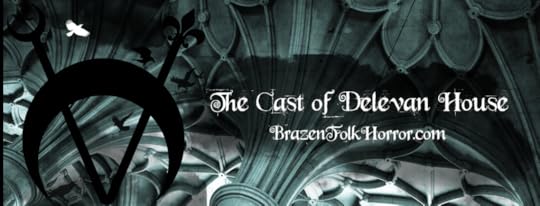
We’ve enjoyed sharing ‘The Making of Delevan House’ with you in a series of posts on Brazen Folk Horror before our release on February 1st, 2023.
It’s time for us to bring you more insight into our remarkable characters, settings, and inspirations that make our story unique and intriguing.
We’ve spent months outlining, designing, crafting, and writing not only a fascinating collaborative piece of work but our personally immersive world.
Without giving away too much, as we hope you’ll indulge us and buy the book, we’ll continue using our #SeductiveSaturday posts for a while to give our readers a feel for what we’ve created.
Today, we’ll give you a glimpse into Delevan House itself.






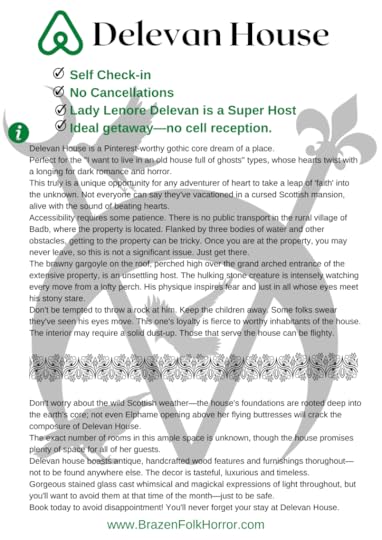

February 4, 2023
Open Doors
Thank you to everyone who has purchased, shared, reviewed and supported Brazen Folk Horror’s debut collaborative release!
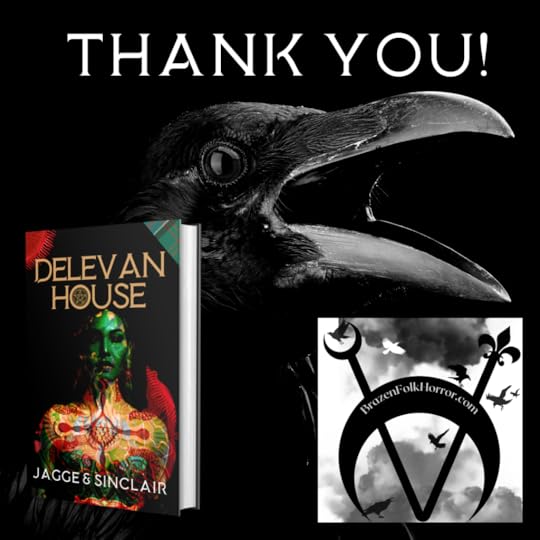 Original Book Cover Art by Don Noble, Rooster Republic Press
Original Book Cover Art by Don Noble, Rooster Republic PressThe doors to Delevan House are officially open, and we have had an extraordinary time hearing and reading our guests’ thoughts! We treasure every one of you.
Print copies are now being shipped and arriving with readers who were quick to order. Please remember Natasha (in Scotland and Ruthann (in the USA) are offering exclusively designed duel signed bookplates to the first twenty readers who message us with proof of purchase of a print copy (paperback or hardback) of Delevan House!
These bookplates are STRICTLY LIMITED TO TWENTY. No more will be printed. So don’t forget to send your proof of purchase.
 Double sided, duel signed, strictly limited!
Double sided, duel signed, strictly limited!Once again, thank you!
And don’t forget—#bebrazen
January 31, 2023
Imbolc 2023
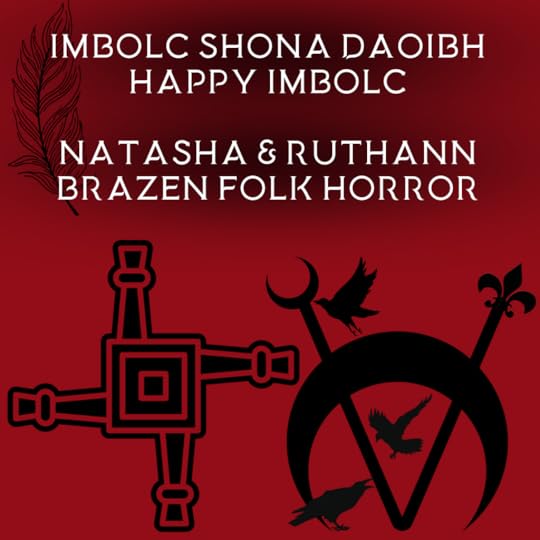
Everything we do here at Delevan House is by design, and here’s why we chose this specific date for the release of Book I in our trilogy.
Imbolc is a pagan holiday celebrated from February 1st through sundown on February 2nd.
Based on Celtic tradition, Imbolc marks the halfway point between the winter solstice and the spring equinox, celebrated in Neolithic Ireland and Scotland.
It’s one of several pre-Christian holidays highlighting some aspects of winter and sunlight and heralding the change of seasons.
Imbolc is the perfect time to bring new projects to light, allowing heat to penetrate carefully down seeds so they can grow and flourish in the spring after a winter’s rest.
The title, Imbolc, is derived from Neolithic Irish Imbolg, which in essence means ‘first milk’ or ‘in the belly’, as the season is ‘winter pregnant with summer’, and it’s only six weeks away from the equinox, where it’s common in rural areas to see lamb frolicking innocently in fields. New life blossoming in the warming light.
The festival also celebrates the triple Goddess Brigid, the patron of fire, blacksmiths, fertility and abundance. The deity was adopted later by Christians as ‘Saint’ Brigid as part of the transition from ancient Pagan traditions to Christian indoctrination.
You’ll learn more about this ebb and flow when you visit Badb in our story.
It’s a great time to reconnect with nature, although the rules of nature don’t always apply in our book.
We prefer it that way.
Imbolc Shona Daoibh — Happy Imbolc
Happy release day to Delevan House!
02/01/2023
Natasha and Ruthann
#bebrazen
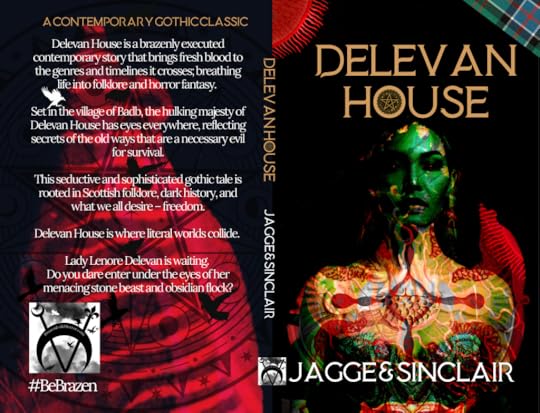
January 27, 2023
Delevan House Launch Exclusive
Launch week is almost upon us! Digital and print editions will go live worldwide from 1st February! Even our chosen release date was not selected blindly. Imbolc relates directly to one of the cast of Delevan House. Perhaps when you read the novel, you’ll spot the link!
We are giving away an exclusively designed, limited, duel signed bookplate to the first twenty readers to purchase a print copy of Delevan House from any retailer. You must contact Natasha or Ruthann with proof of purchase, and we’ll get this special launch exclusive shipped to you! Original link to full details is here.

We have been truly honoured that all invited early readers accepted their invitation to Delevan House. Early reviews of this genre-bending, gothic novel have been exceptional. We are genuinely humbled (their have been tears!) and could not be happier that early readers have taken so warmly to our world of folklore and dark fantasy. We cannot wait to hear what our other #brazenreaders think!
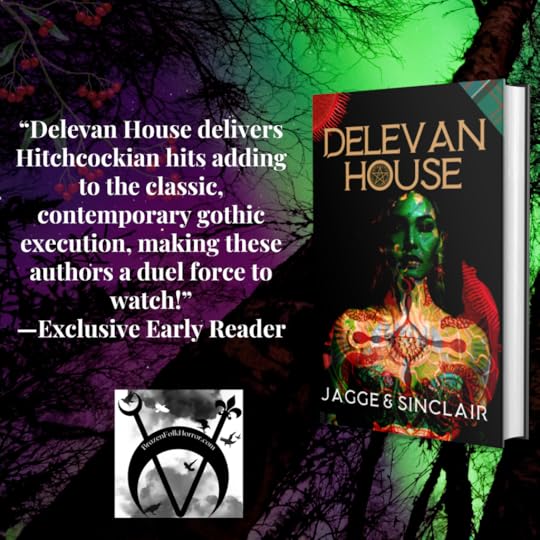

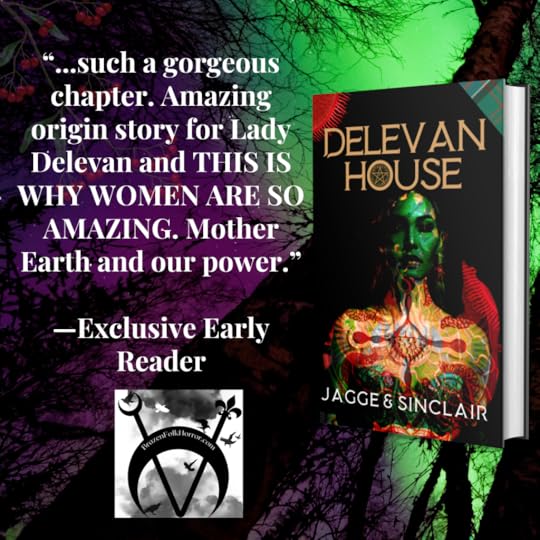
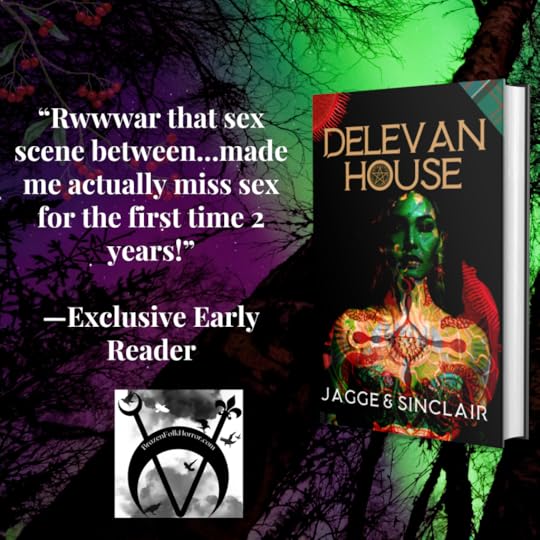
January 20, 2023
The Making of Delevan House #22
First Blood: Delevan House Review
They say you always remember your first.
We are eternally grateful to all our exclusive first readers, and absolutely blown away by the depth of our initial review for Delevan House.
She gets and describes many of the nuances we were aiming for in our story, and as a collaborative writing-duo, without giving away the devil in the details.
Thank you Nat Whiston, we’ll never forget your words, and appreciate you to the moon and stars!
Read her in-depth review of Delevan House releasing on 02/01/2023 here! and follow her for more insightful reviews and releases of her own uique flavor of horror fiction.



